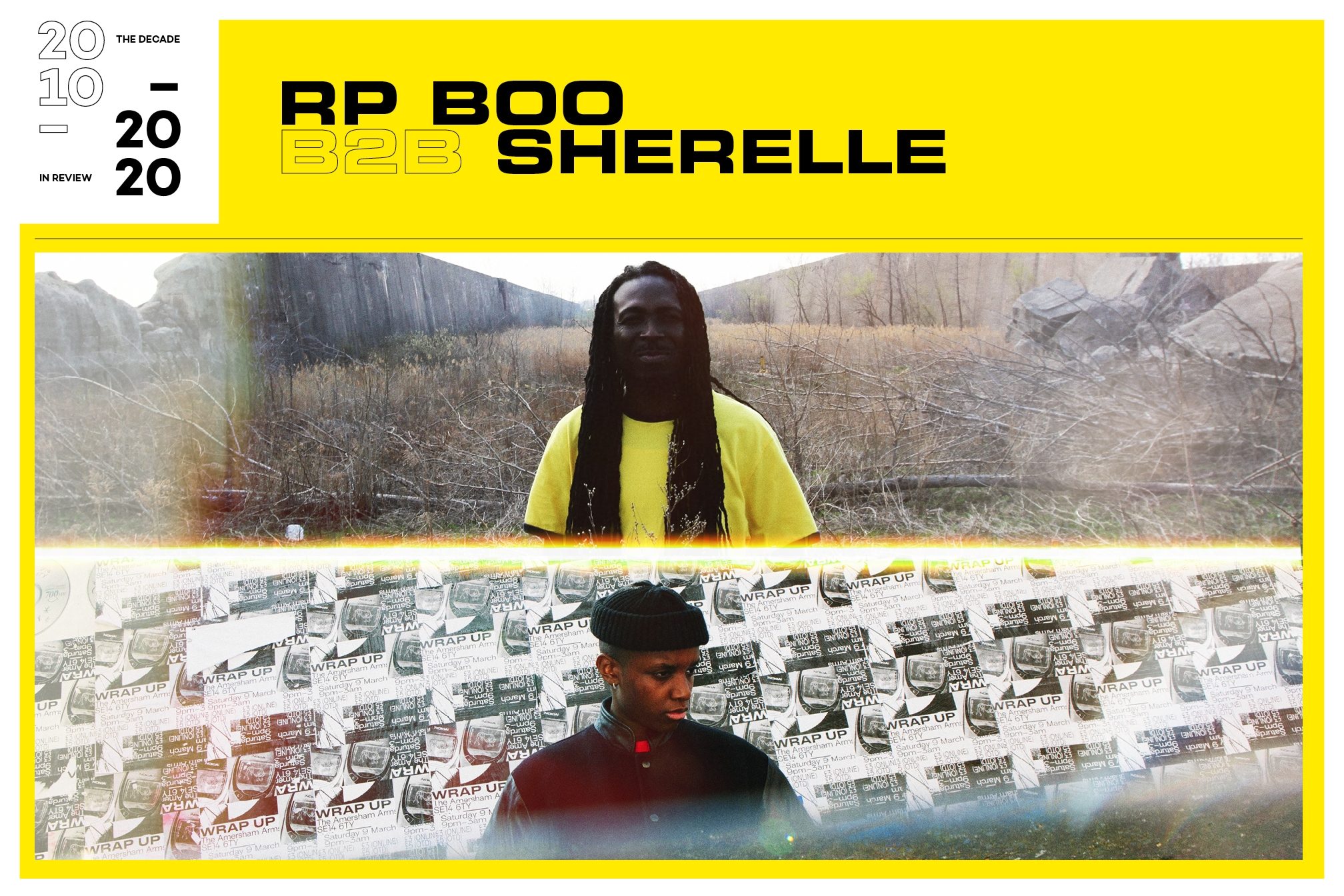 Artists
Artists
Wild relief: RP Boo and SHERELLE discuss the power of footwork
Footwork has been one of this decade's dance music success stories
Footwork is one of this decade’s dance music success stories. Born in Chicago, this fast, propulsive genre evolved out of the city’s ghetto house and juke scenes and, running at a swift 160bpm, was originally designed to soundtrack spectacular dance battles and uplifting community street parties.
Thanks to frenetic YouTube clips, Planet Mu’s seminal ‘Bangs & Works’ compilations and footwork’s shock-of-the-new factor, the sound started to spread beyond the borders of the Chi in 2010/11 and now, as the tens come to a close, you’ll find 160bpm disciples everywhere from Tokyo to Belgrade.
Other geographical sounds have bubbled up and out this decade: Jersey Club, Gqom and Bérite Club, for instance. But none seems to have captured the imagination of DJs, producers and ravers like footwork. Maybe that’s because of how malleable it is, from the ethereal quality of classic Machinedrum to Taso’s party-starting remixes and from Jana Rush’s deep explorations to Jlin’s twisted assault on the senses. Footwork races into the future, absorbing samples and styles and reconfiguring them into something new. Something avant garde and ridiculously fun. It bangs in the club too.
Foundational artists such as RP Boo continue to spread the word around the world, actively encouraging footwork’s growth and teaching its history (its dance roots haven’t been forgotten, for instance). Younger heads like SHERELLE are tapping in to the global 160bpm community, connecting the dots between Chicago and far flung footwork locations, while introducing a new generation of fans to this mindblowing music, which remains as fresh as ever.
We brought the pair together to talk about the progression of footwork across the decade and, of course, the legacy of the late, great DJ Rashad.
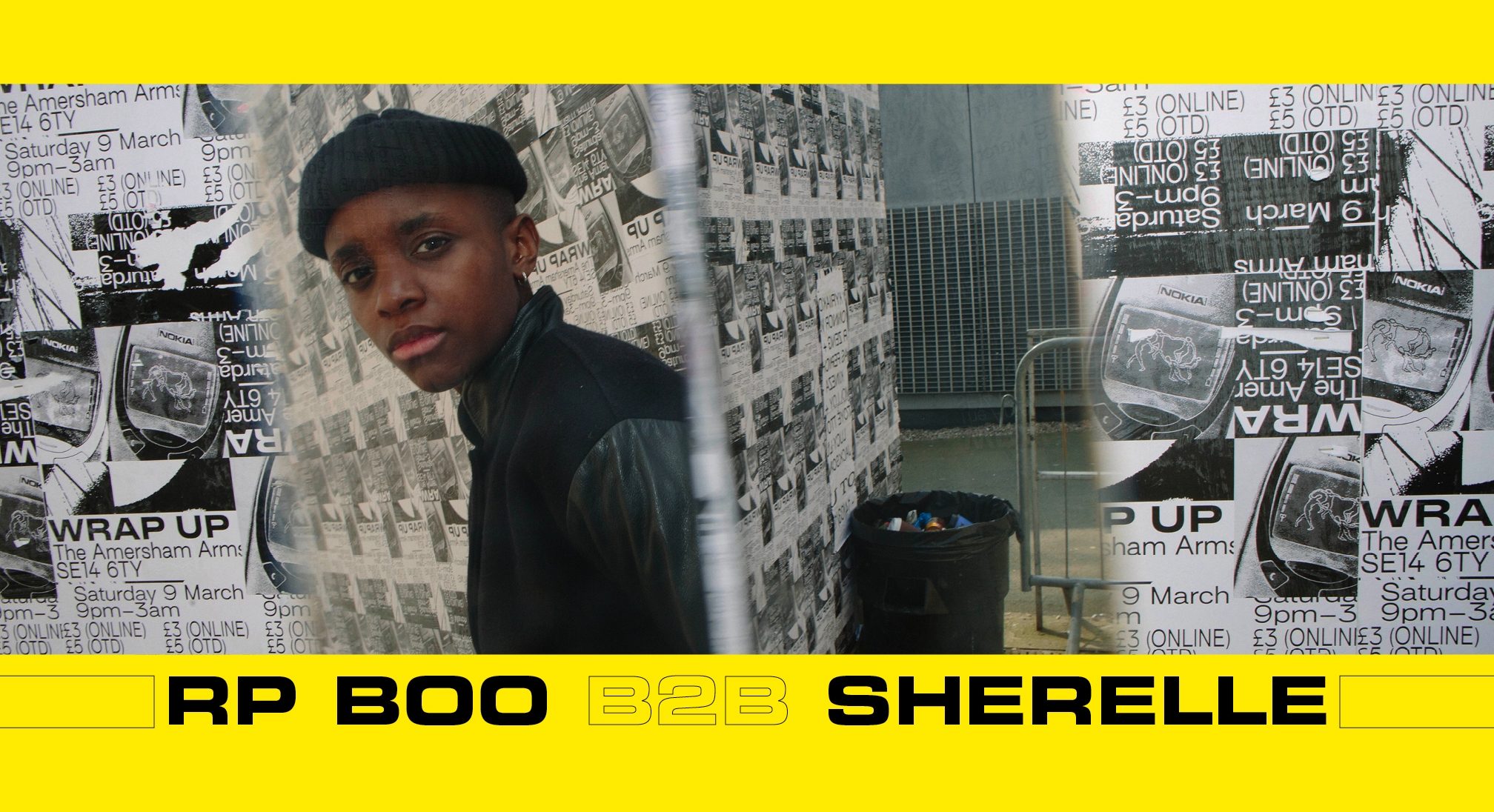
What was going on with footwork in 2010?
RP Boo: It was kind of quiet apart from the opportunity with [Planet Mu label boss] Mike Paradinas who was about to really make things happen with 'Bangs & Works'.
But back here in Chicago the scene was dying out. Every so often there might be an event that was being held by a guy called Jerome Williams, who had a showcase on Cable TV called Wala Cam. It had its ups and its downs and the footworkers were complaining about things but myself, DJ Rashad, DJ Spinn, we just kept active with the music, sharing the music, but Chicago wasn't looking too good.
SHERELLE, what were you doing in 2010?
SHERELLE: I was 15 and basically trying to do my GCSEs. I'd just quit football. I was listening to BBC Radio 1 at the time, trying to work out what music I was into. I was listening to Annie Mac and Zane Lowe and was very heavily to indie, so nowhere near my footwork journey. I got into that around 2012, 2013.
What was your first introduction to the sound?
SHERELLE: DJ Nate's EP, 'Hatas Our Motivation'. And around about the same time I was also interested in Machinedrum, who did a mix for Mixmag. I knew about the jungle side of things but there was also a lot of footwork, so that’s when I got introduced to RP Boo, Rashad and Mark Pritchard. That's when I heard the sound but couldn't work out or put a name to what the sound was. That's pretty much how I got into footwork. But actually being able to put a name to the genre was through the Boiler Room with RP Boo, Rashad, Manny, DJ Taye...
RP Boo: Yes! I remember that day.
SHERELLE: That set saved my life because I was at a job that I didn't like and I didn't realise I was about to be made redundant and [watching] the energy from that performance, I was like, what the fuck is this! And I did my research and I was like, fuck, these are the same people that I heard in that [Machinedrum] mix so it all came together in that sense. How was that day?
RP Boo: Rashad gave me a call four days prior and asked [if I wanted to play], but I didn't get to spin because they had technical difficulties at the end [of the party]. I got there before him, Spinn and Manny walked in. They walked in 50 seconds before their set started and I was in the back screaming, jumping up and down, because I hadn't physically seen Rashad in two years, but me and him always had this chemistry, and that was when he was working on 'Double Cup' and I was hearing all the new stuff. When I was listening I was thinking, this man has grown tremendously. What happened with Rashad, his production had super sky-rocketed since the last time I'd played with him. That day was bananas! We left that place drenched.
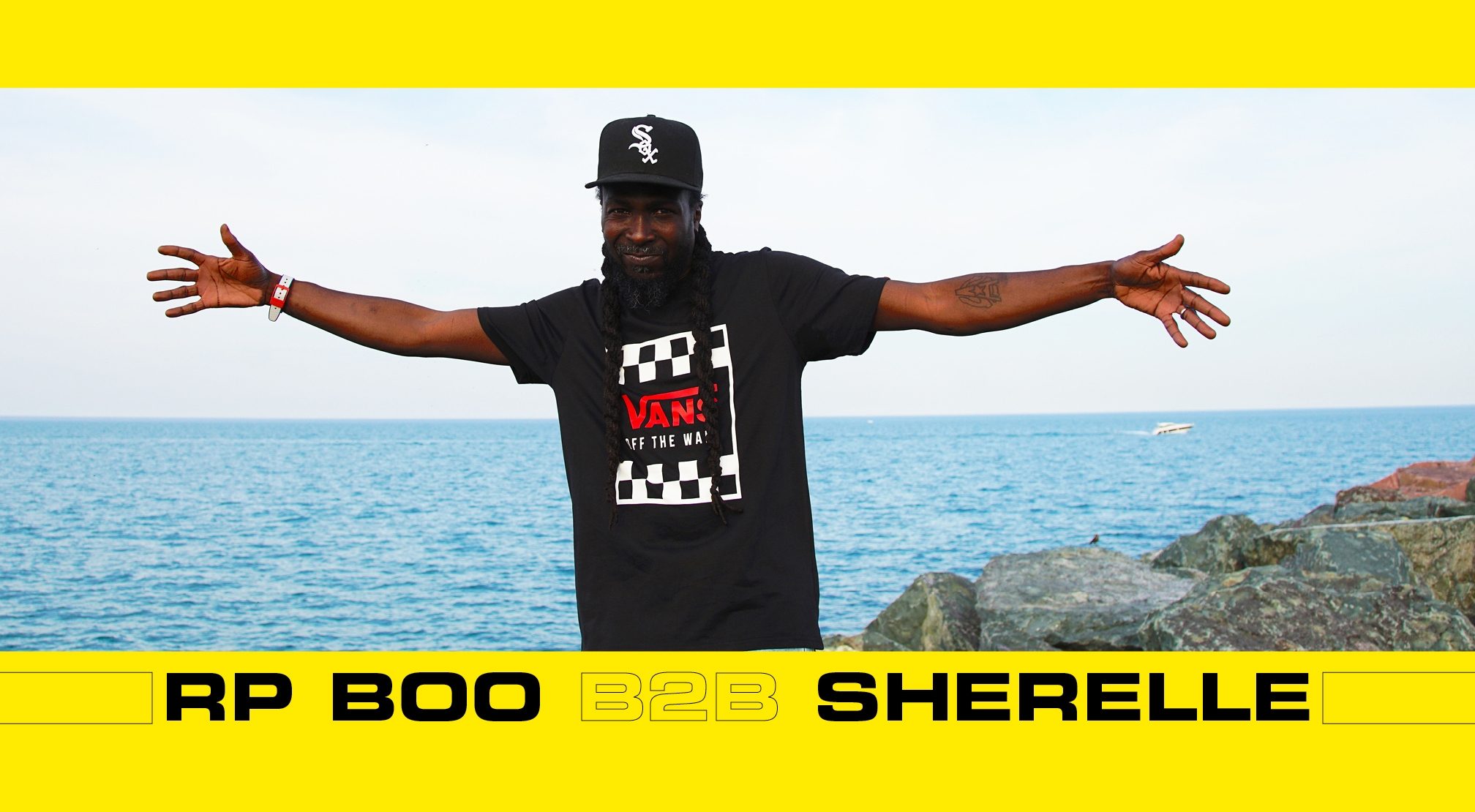
Inevitably we've started talking about Rashad, who passed away in 2014. Can you talk about his legacy, what he built and how he's still influencing the footwork scene?
RP Boo: He was building this thing toward what he wanted all newcomers and all new producers to be. [He wanted them to get] bigger and better off the influence that he wanted to help bring. He really wanted the music to go beyond what we do, and he always kept the energy going.
A lot of people here in Chicago couldn't figure out his travelling. His travelling helped him become a better producer. Travelling all over the world, he was able to see and meet new artists and have appreciation with their art. Instead of saying, “here is footwork, this is all you need to hear,” he was willing to embrace others as well and it turned him on to the point to which he was loving what he was seeing, these great up-and-coming producers, and even those that had good, clean production, he was there to help do input and say “hey, if you would like me to help you out on certain things, feel free." And it just started happening. He is a great motivator. Rashad still right now today in Chicago is highly missed and he left an ongoing trail because he left a blueprint for great footwork production and the artwork of it.
How did Rashad's attitude go down in Chicago? Because he really wanted footwork to grow and go international.
RP Boo: He had an incident here right before he went into that expectation of saying “hey, the world can have it.” We were playing here in Chicago in Millenium Park – it's a big, big park in Downtown Chicago – and it was a footwork day that Red Bull sponsored and when we found out we were like, how impossible was that to become. This place is an outside venue that can fit 15 to 20 thousand and it was a free event. And when I got down to that area I could hear the music from four blocks away but when I got to the main standing area, it was less than 50 people. Rashad, Spinn, Traxman and a couple other people played and that was when he was like, “you know what? We tried our best for Chicago and the people of this city.” He said, “I'm just playing and I'm just going to keep on producing music and playing music elsewhere to people who appreciate it.” People overseas appreciate it, they're begging for it. So he was like, “I'm done”. And from that day on Rashad took off and never came back. He lived in Chicago but he never wasted his energy with Chicago. That was one of the best things he did and I do the same thing now.
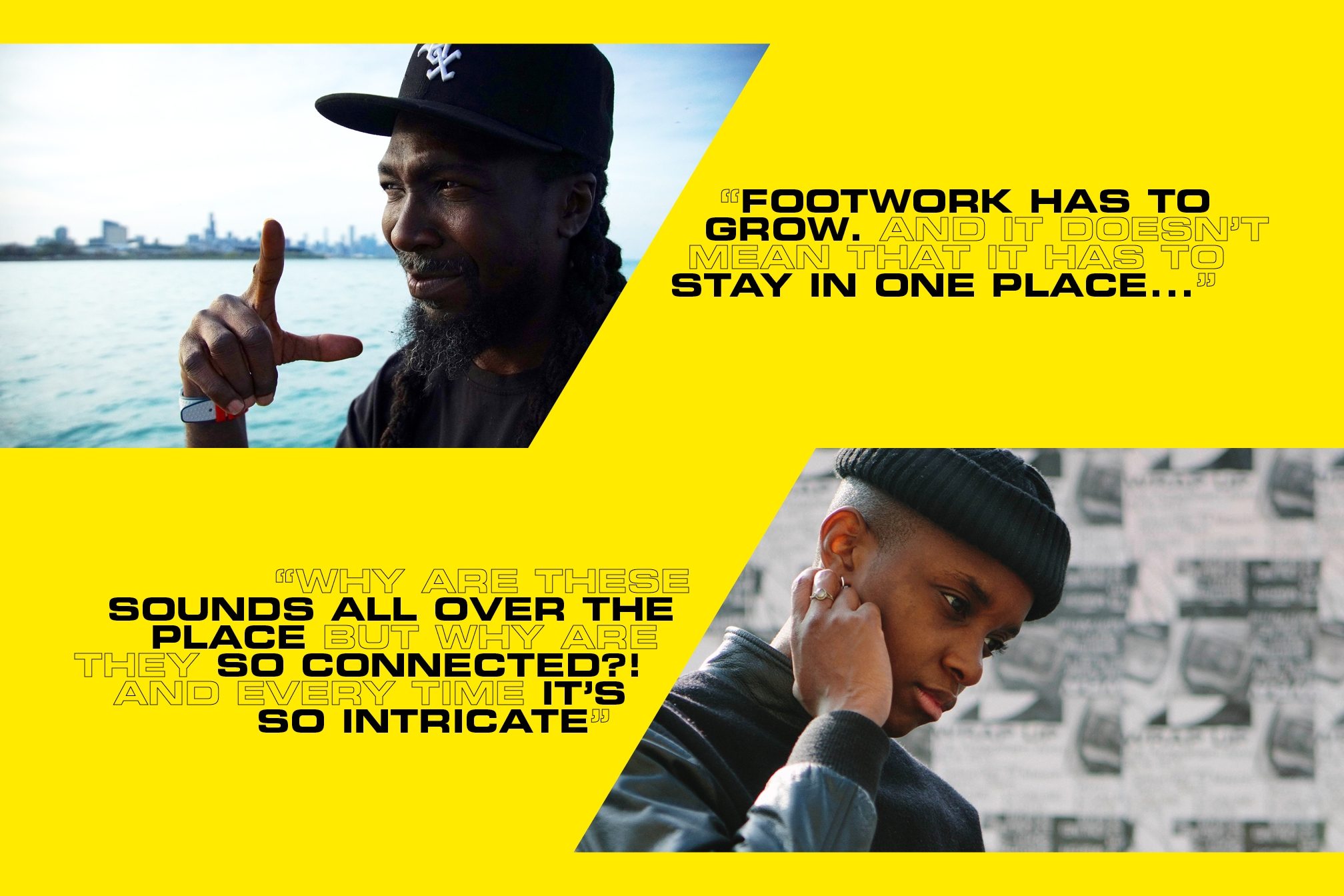
SHERELLE, what are you thoughts on DJ Rashad and his legacy?
SHERELLE: Footwork means a lot to me because I can clearly hear its black experience. I'm really happy to play this music because it's made by black people. I've always been more inclined to be with music that's more relevant or reflective of my black experience or at least other people's black experiences. The jungle side of things also, that's music that was made by very young black men in London or around the UK and I hear the same kind of influences as in the footwork and juke that's being made by young black boys in Chicago. That's definitely one reason why I'm into the music.
Regarding Rashad's legacy, I've had to work my way backwards with his music. Obviously 'Double Cup' is one of my favourite albums and going into a rabbit hole of what footwork is through him, I was able to find out about ‘Teklife Vol 1’ all the way back to the Juke Trax Online releases that I had no idea about.
He was clearly an artist who was so multifaceted that he could produce anything. And there's so many different versions of him, all of his productions are very different, and it's something that's kept me excited about the footwork journey. There isn't a producer like him, apart from yourself Boo or Spinn or Taye, where I can be like, “fuck, they've got so much about them that I'll still be learning their back catalogue [for years to come].” I was going to ask you Boo, in terms of footwork and juke, how did the music get progressively faster?
RP Boo: Juke is just a name that’s made ghetto house survive, that's all it is. But the speed pick-up was due to Chicago's dance groups, who were competing against each other. So one group decided to take a regular track – a house song or something from Prince – and of course it was vinyl, so they decided to take a 33 1/3rpm record and put it on 45rpm. I give a lot of credit for that to DJ Clent and Traxman. They were able to start producing at 145bpm and then it went to 160bpm instantly. That's when we weren’t paying attention that there was a new feature, because the footworkers had so much energy to keep up with the tempo and within a year or two it just became a solid foundation and it stayed at 160bpm. But I was still producing 145bpm, 150bpm, 155bpm, 160bpm – so I still fluctuate to this day.
SHERELLE: It's amazing hearing about [how it evolved].
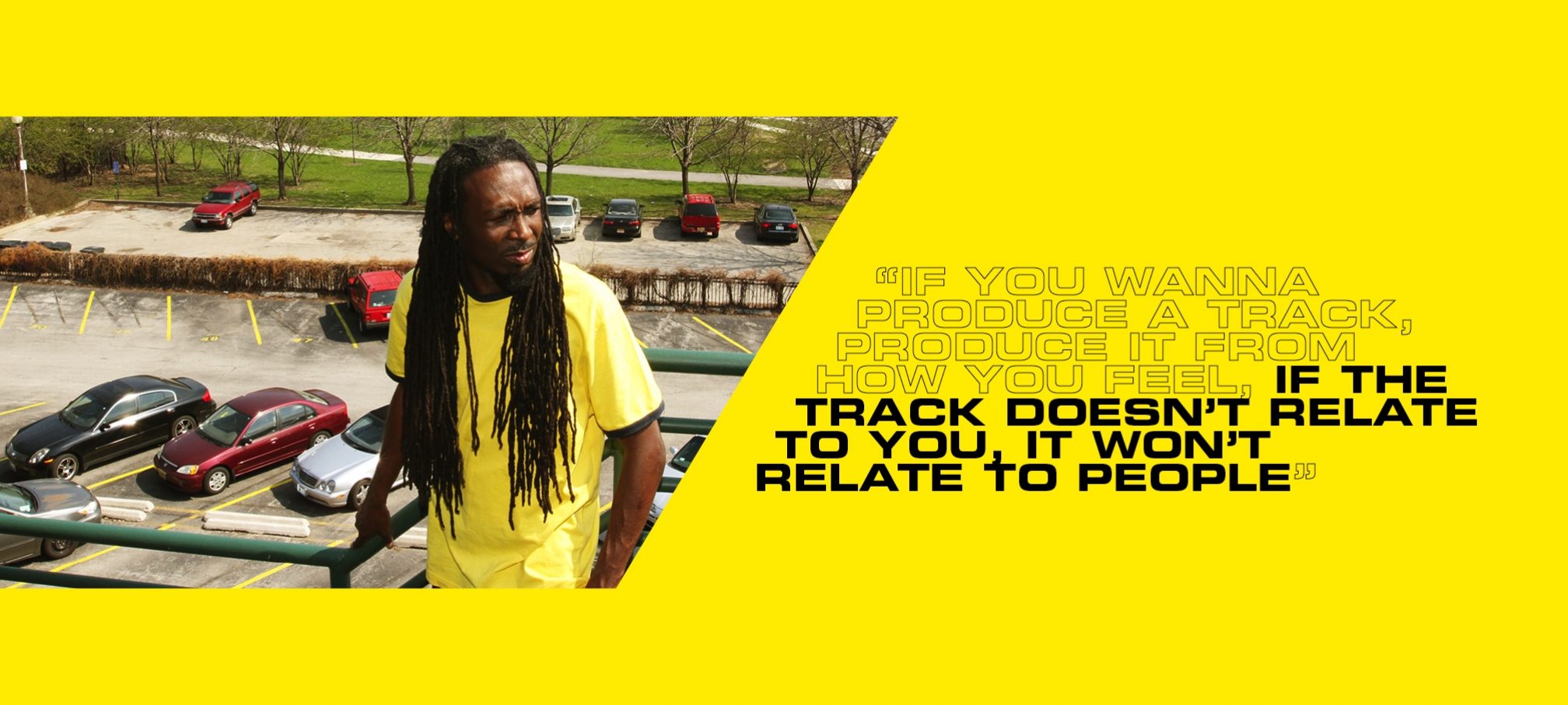
RP Boo: One thing I can say SHERELLE is this: just seeing your sets, your sets are amazing, they're energetic, and I know that if Rashad were here to see it, Rashad would give you great compliments. So I will say this on his behalf: it's been a long time since I seen someone outside of Chicago that got energy like you. And I understand where the energy come from because you spoke on it.
For a woman in this field that's outside Chicago, Rashad would have said, this is who you need to watch and who you need to learn from.
SHERELLE: Are you serious? I'm trying to play it cool Boo...
RP Boo: What it does is it helps other people become. What I try to teach when I play with others [is] don't be intimidated. I don't care how big you think the name is, I had to learn to tell people that you're going to have people who are starstruck when they see you. Talk to 'em, they're individual people. But what that does is help them drive to have a better set without being there to compete and they won't feel threatened. And everyone's set will be super bananas because if you look at it, everybody is an individual. Be a natural act – and you are natural.
SHERELLE: Thank you. I've got quite a European take on it. That's one of the things I was scared of when I was playing the music was to not piss off anyone from Chicago. You have to be respectful of where the music has come from. For me, it was definitely about being true.
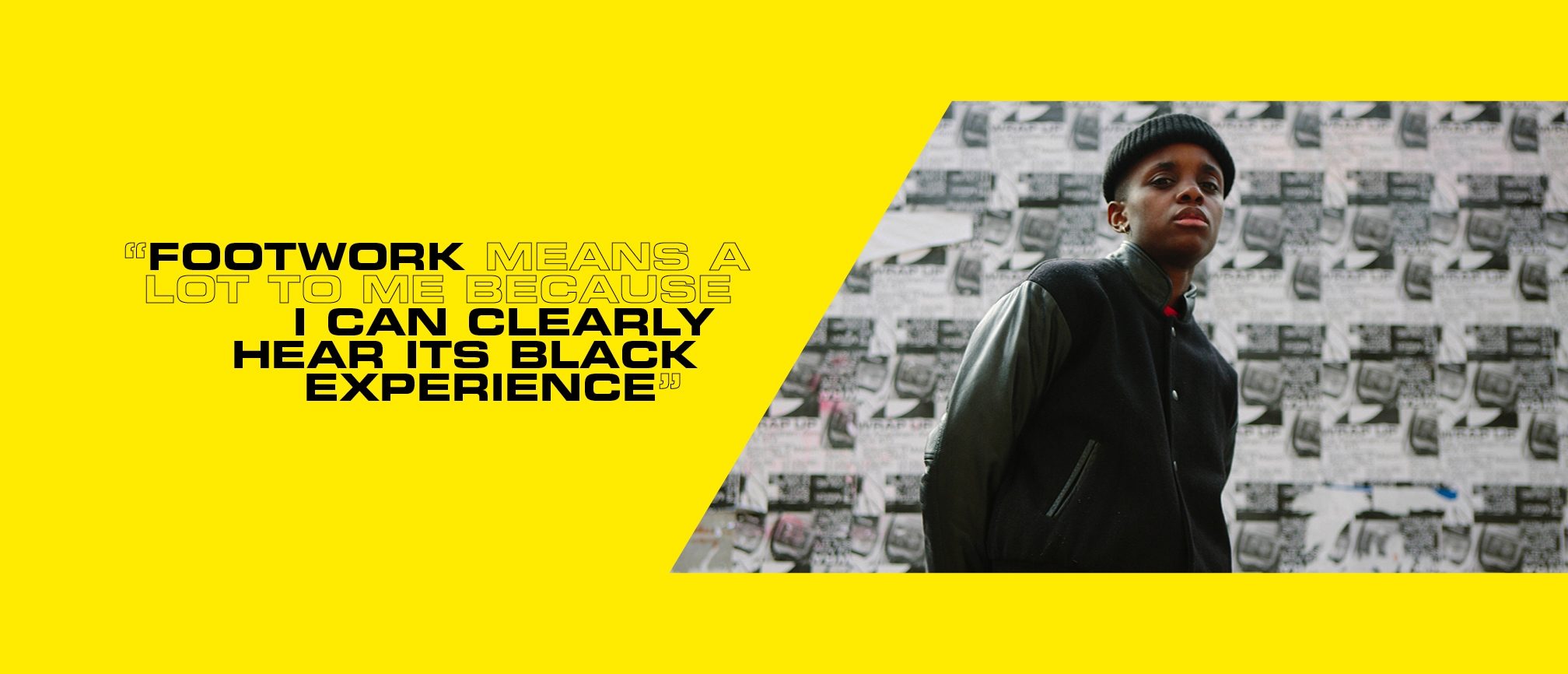
Boo, how does it feel to know that a genre you helped create is being played all over the world?
RP Boo: It's easy for me, I love it. As they say, if your vision is great and your heart is greater, when it presents itself for what it really is, it's bigger and better than what you imagined. It had to grow. It has to grow. And it doesn't mean that it has to stay in one place; if it stayed in one place it would never get discovered. It's supposed to be discovered.
SHERELLE, you’re introducing 160bpm to a new generation of people. Can you talk about that and the reactions you've been getting?
SHERELLE: Before my first Boiler Room I didn't play that much in the UK. And I think I just wanted to play the songs that I'd been playing out so to see the reaction from so many different people saying they're playing that set at work or what they've learned from it [is amazing]. Going forward with sets and my BBC Radio 1 residency, I now know that I want to educate people and [let them know] that there's easy entry points to listening to [footwork and jungle]. I don't want to kill the scene by making it completely mainstream and all of a sudden fuck it up. I want to make sure there's longevity, in a generational sense – I'd like to think that in a few years time I'm still playing and people are liking it but there's a new group of people doing it and they're not taking it to a point where it's overkill. My next steps are making sure the producers get the recognition they deserve, that people understand the old songs and the new songs, new producers and new collectives versus ones that are already there. It's a lot of work basically but the overall consensus is to make sure there's some longevity. It's about bringing people in.
Do you have a sense that the crowds you're playing to, it's the first time they've heard footwork?
SHERELLE: Yes, definitely. It makes me so happy that there's a new generation who are open to new sounds, they're more open to looking at someone and going, "I'll give you 20 minutes of my time. I'm going to see what you play." The amount of messages I now get where people say, "I've never heard these songs before, can you point me in the right direction" and I'll DM them and be like, "Look, you start here and end here." I don't mind taking the time to let people know the producers, the labels, the collectives. I would like to see the scene grow more to the point where it's a stable scene that people are looking to and recognising. A lot of people will try and fit in with me and be like, "oh, I know Teklife" and I'll be like, "they're amazing but there's so many other things." They'll say Teklife but don't make the connection to Hyperdub or Planet Mu. There's also people like Juke Bounce Werk and Polish Juke and Iberian Juke. They're doing the most. That's my aim: to make sure that these people are elevated and pushed through, alongside [the more established artists and labels].
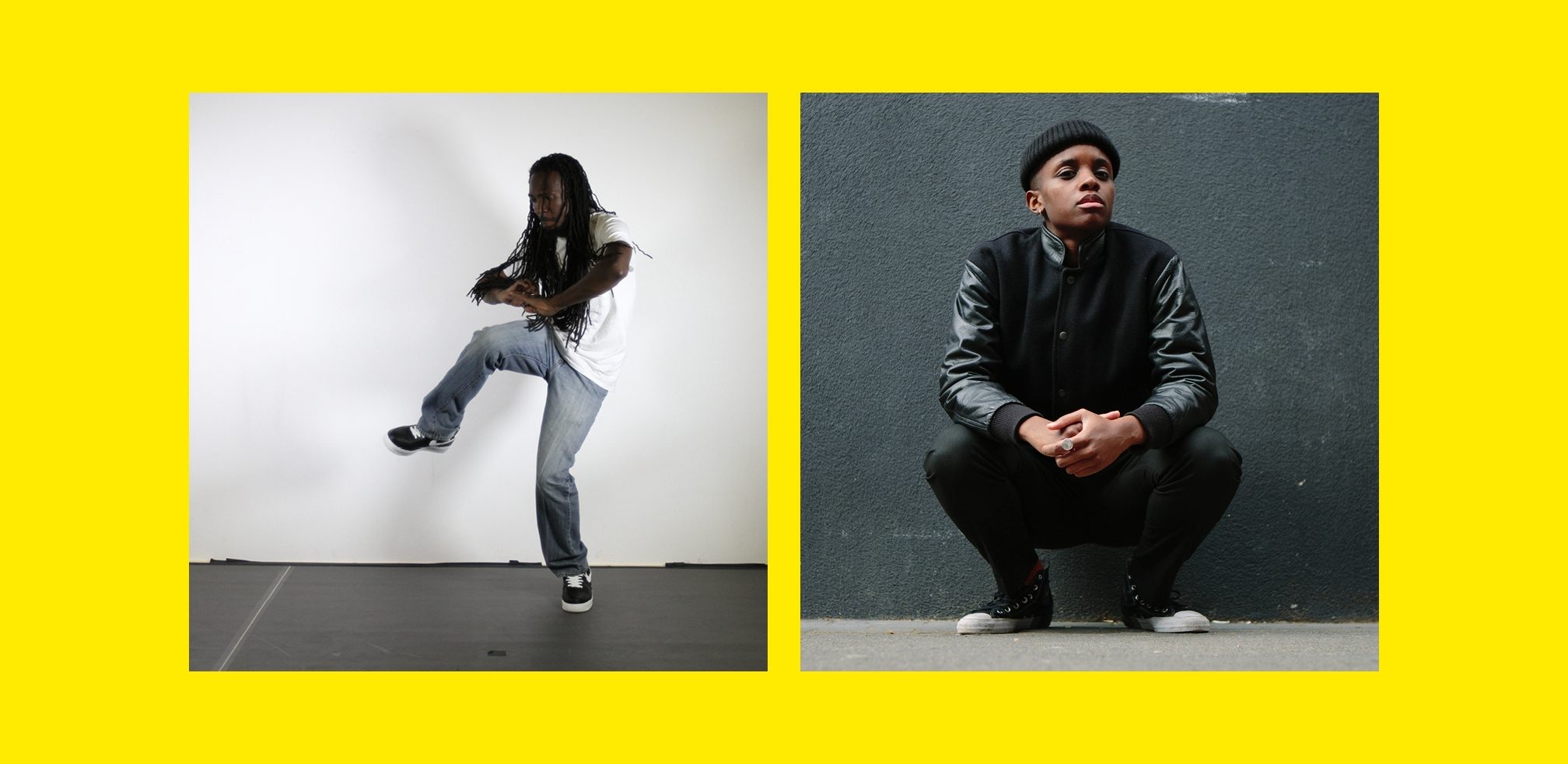
Footwork is very fast. It's fairly intense. Why do you think people like it?
RP BOO: For me, due to my father, he's a musician as well. He said what separates me from everybody else is, as SHERELLE says, doing my history. I'm 47 and a lot of people didn't know that I started late. I come from soul music but I was able to learn and identify and tell my stories within it, so I was oozing so much soul out that it became so rhythmatic that I can still do it at 145bpm and it's funky, it's a groove, it's not orchestrated. The music that was in me, I was able to recreate it from my own passion, I can do it at any level, any speed.
But if you wanna produce a track, produce it from how you feel, if the track doesn't relate to you, it won't relate to people. The people are your test. If they're up and jumping, if they're moving, that's all that counts. Don't be afraid to explore who you really supposed to be and if you think that's what you supposed to be and it's working, go beyond it.
SHERELLE: I like the sound of that. I think the reason people connect with footwork is because it's a very familiar sound. Boo, you were saying you've got a soul background. But I can clearly hear that you or someone like Traxman also have a funk background. When I'm trying to put a set together, for me it's more about what my influences were when I was growing up. My uncles listened to jungle, my sister was listening to r'n'b and hip hop. Luckily I've been fortunate enough to know the people I'm playing to are used to listening to those genres and more, all in one go. So I've been fortunate that my sets have sat well with people.
Footwork is something you've never heard before. It will blow your mind: Why are these sounds all over the place but why are they so connected?! And every time it's so intricate. The perfect example is your album, 'The Legacy'. ‘Invisibu Boogie!’ is the best song ever. How did you make that one?!
RP Boo: A lot of tracks, if you pay attention, you'll hear me say certain things and I'm actually talking to footworkers because I used to dance. I'll say, "make you invisible". So if I put myself there, I'm on the floor, and I'm doing a good job – the people [at the footwork battle] won't look at you because now I just made you invisible. Those are the ideas. I think about what I wanna do, I'll say some things, because I used to be afraid of saying anything, so I put the trust in myself and started doing it.
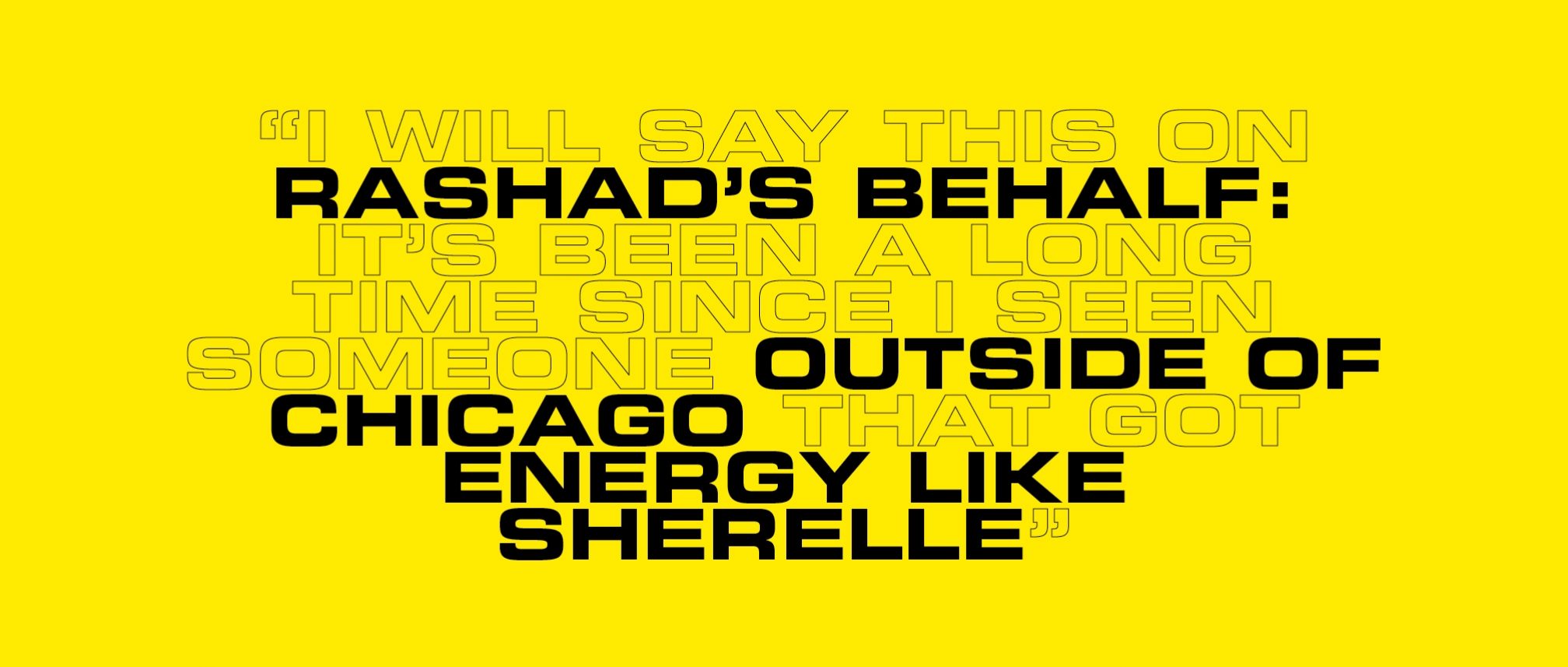
Boo, how do you use samples in your music?
RP Boo: I was limited with sampling time, I didn't have no software that would do time stretching, and so when I got the opportunity, there might be something on the radio, so I would just grab it and make it. Over the years I've built so many of these tracks and I notice that now when I do make them it has to be something that I have already in my mind and it has to mean something about what I'm trying to say. If there's something I'm trying to say to the people, I'll use that sample. I don't just take it and use it and pretend to talk to it, it has to have a statement within itself.
SHERELLE, you use samples, in terms of playing edits and remixes, in a specific way for dancefloors.
SHERELLE: The way I listen to songs is that I want my sets to be one big song. I’ve been so used to listening to people remixing stuff anyway; I’m surrounded by producers who are good friends who do edits of tracks. When I was first downloading seminal footwork tracks, I was also downloading new ones by amazing producers like Kush Jones, El Blanco Nino and AceMo – they are people who remixed tracks really well. There are others like Sideswipe and Anna Morgan who do remixes of popular hip hop tracks or stuff from the 80s and 90s. When I’m downloading music, I have a similar ethos to Boo. If It sounds good I’ll play it and if it means people will be jumping up and down and having a good time, that’s where I’m going to be coming from.
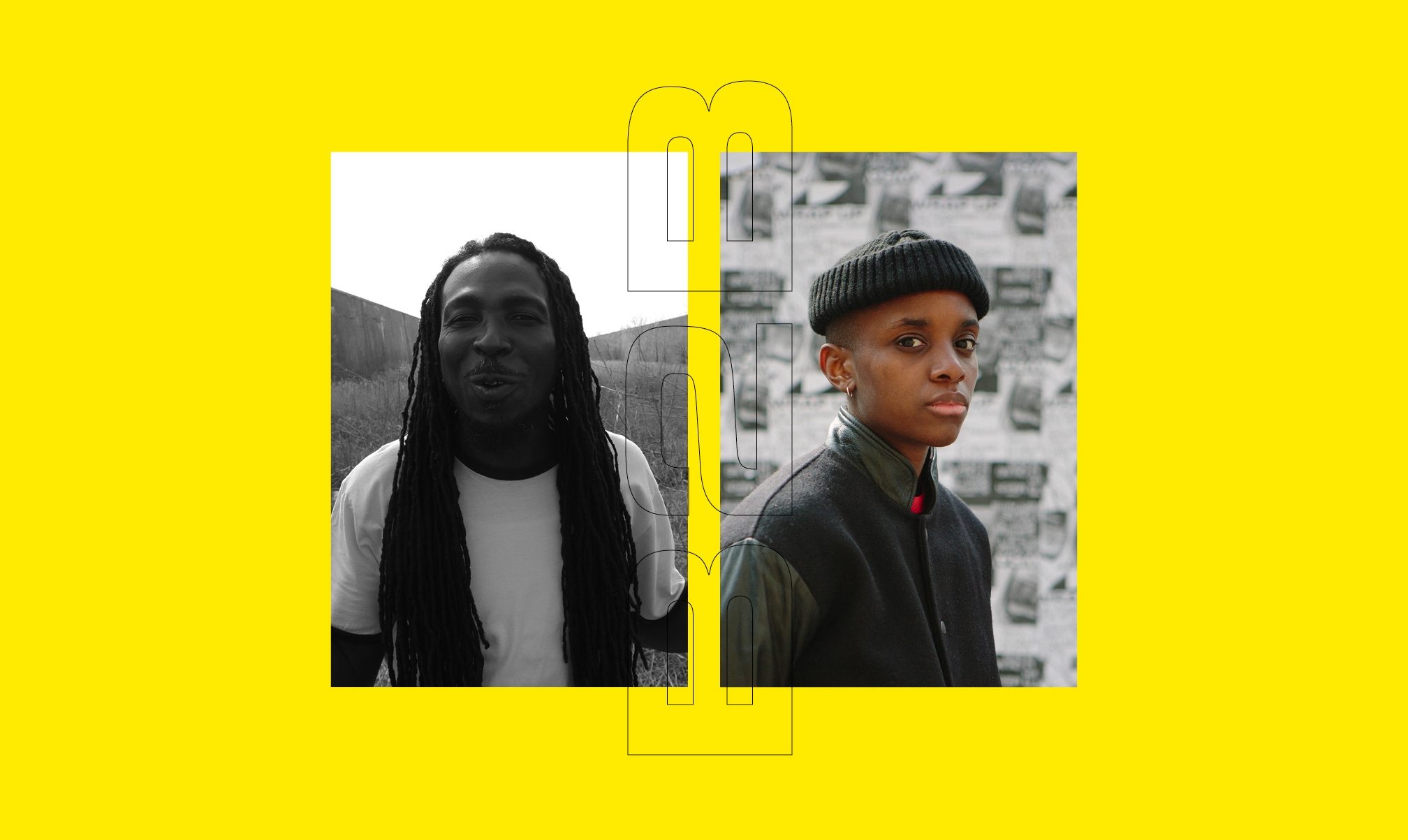
Why do you think footwork has been adopted around the world?
RP Boo: As SHERELLE said, it’s visible because of the energy, the relief that some people feel they haven’t seen or heard for a while and that’s coming from a different genre. They didn’t expect that something new would come in and have energy, but it has so much energy as well as the samples that are being used, they can relate to. It’s complimenting their youth, or an introduction, as SHERELLE says, that will make you go backwards and ask questions. If you really want to understand what’s happening, it’s a history lesson. But by the time they get through understanding that it can go back so far, by the time they hear the new joints it’s futuristic in front of them and was made today.
SHERELLE: We’re not living in the best times and people don’t feel a sense of belonging [in everyday life], so regarding the music and the way that people actually take it in, when people hear footwork, it’s fast and epic, they leave their issues at the door and they’re dancing for two hours and experiencing this wild relief.
Footwork’s got a lot of love for it. You can’t just make a footwork track; if you haven’t thought about it, it won’t sound good. That’s the thing about footwork; you can’t get away with making a bad footwork track, because if you do, everyone’s going to know about it and nobody’s going to want to play it. It’s rare to come across a genre where you can’t get away with making terrible stuff.



